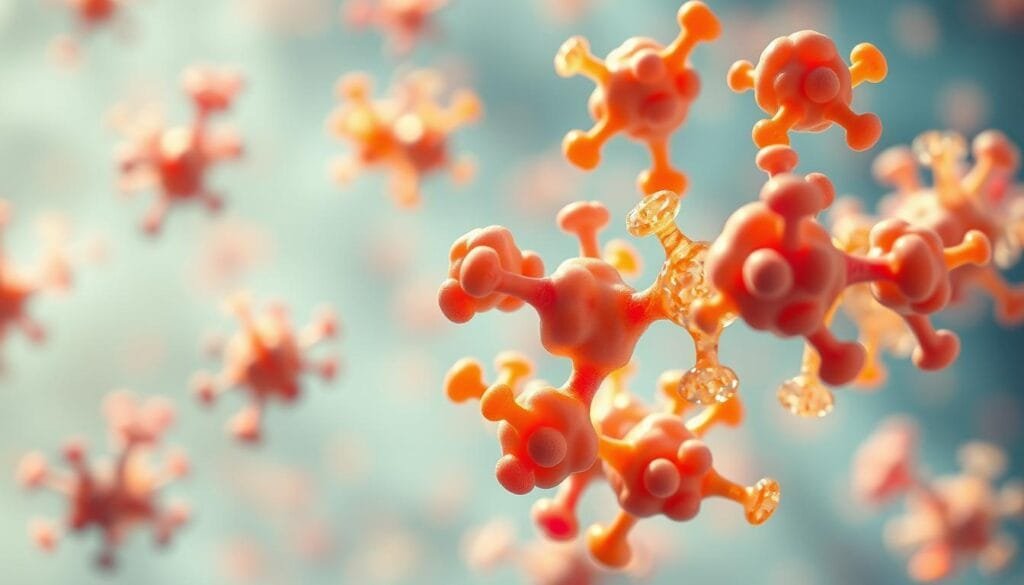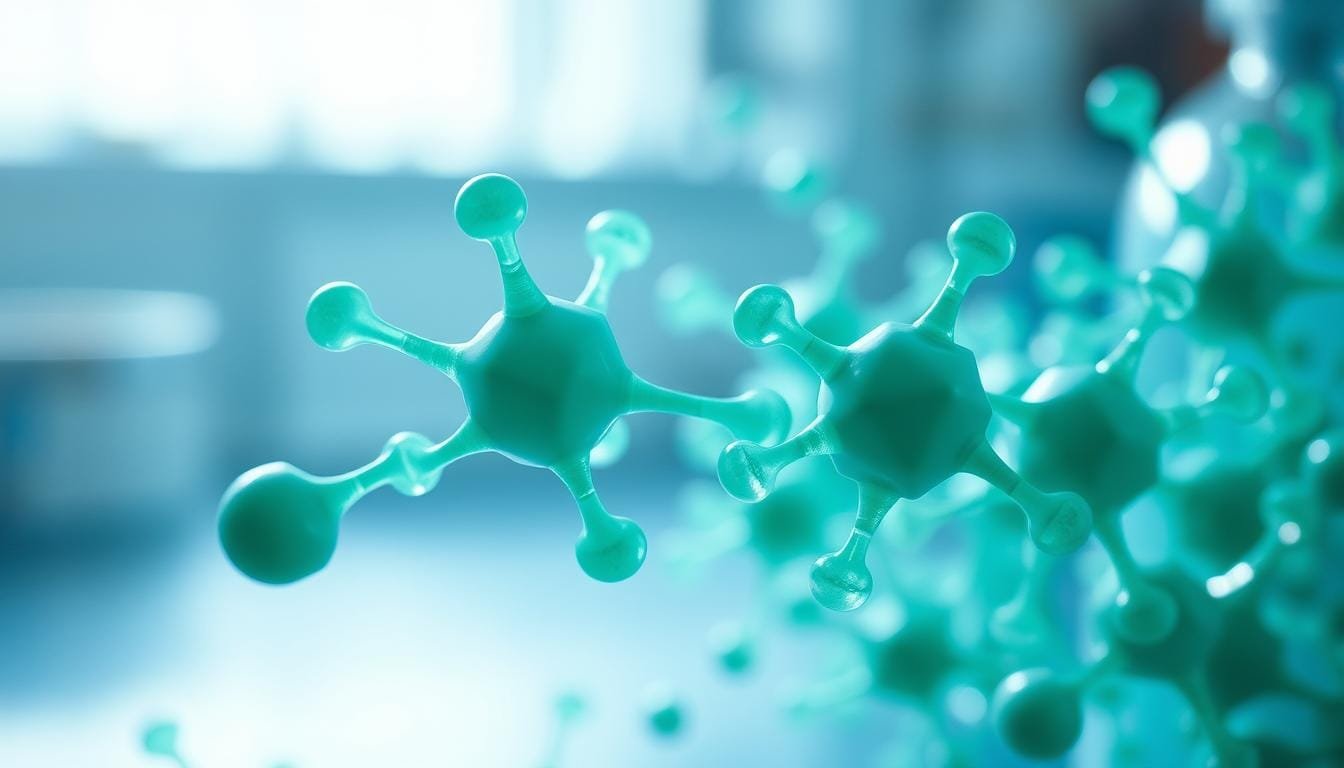Currently Empty: RM0.00
Have you ever wondered why some people feel lighter and more energetic after meals, while others struggle with discomfort? The secret often lies in the role of digestive enzymes, essential proteins that break down food into nutrients your body can absorb.
In Malaysia, where diverse cuisines are a way of life, digestive health is a priority. Wellness Concept Malaysia focuses on providing solutions that address common issues like bloating and gas. Their approach combines natural sources and supplements to support your body’s needs.
Whether you’re exploring natural options or considering supplements, understanding how these proteins work can make a significant difference. Friendly and actionable advice is at the heart of their mission, helping Malaysians achieve better health effortlessly.
For more information, reach out to Wellness Concept Malaysia at +60123822655. Their team is available during business hours to guide you toward a healthier lifestyle.
Key Takeaways
- Digestive enzymes are essential for breaking down food into nutrients.
- Wellness Concept Malaysia offers solutions for digestive health.
- Common issues like bloating and gas can be addressed effectively.
- Natural sources and supplements are key to supporting digestion.
- Friendly advice tailored for Malaysians is a priority.
What Are Digestive Enzymes and Why Are They Important?
Ever felt sluggish after a meal? It might be due to how your body processes food. Digestive enzymes are proteins that break down food into smaller, absorbable molecules. Without them, your body can’t extract the nutrients it needs to function properly.
These enzymes are produced in the pancreas, saliva, and small intestine. They target specific food groups: amylases for carbs, proteases for proteins, and lipases for fats. When enzyme levels are low, issues like bloating or nutrient deficiencies can arise.
The Role of Digestive Enzymes in the Body
Digestive enzymes play a vital role in breaking down food. For example, amylases convert starches into sugars, while proteases turn proteins into amino acids. Lipases handle fats, breaking them into fatty acids. These processes ensure your body gets the fuel it needs.
When the pancreas doesn’t produce enough enzymes, it can lead to malnutrition. Conditions like cystic fibrosis often require enzyme replacement therapy to manage symptoms. This highlights how crucial these proteins are for overall health.
How Digestive Enzymes Support Nutrient Absorption
Once food is broken down, the nutrients are absorbed in the small intestine. Digestive enzymes make this possible by converting complex molecules into simpler forms. For instance, lactose intolerance occurs when the enzyme lactase is insufficient, leading to discomfort after consuming dairy.
Natural sources like pineapple contain bromelain, a protease that aids protein digestion. Studies show bromelain can reduce inflammation and improve gut health. This is just one example of how enzymes help maintain a balanced digestive system.
For more insights on digestive enzymes, visit this resource.
Types of Digestive Enzymes and Their Functions
Understanding the different types of digestive enzymes can transform how your body processes food. These specialized proteins target specific nutrients, ensuring your system absorbs what it needs. Let’s explore the three main types and their unique roles.
Proteases: Breaking Down Proteins
Proteases are enzymes that break down proteins into amino acids. Found in foods like papaya and pineapple, they contain papain and bromelain, respectively. These plant-based sources are known for their anti-inflammatory properties, making them a natural choice for gut health.
Unlike pancreatic proteases, which are produced in the body, plant-based options are gentle yet effective. They help reduce inflammation and support muscle repair, making them essential for overall wellness.
Lipases: Digesting Fats
Lipases handle fats, breaking them into fatty acids and glycerol. After a high-fat meal, like one featuring avocado, lipase supplements can ease discomfort. These enzymes also play a crucial role in absorbing fat-soluble vitamins like A, D, E, and K.
Studies show that lipase activity increases with fermented foods like kefir. This highlights the importance of a balanced diet for optimal enzyme function.
Amylases: Converting Carbs into Sugars
Amylases are responsible for turning carbohydrates into simple sugars. Ripe fruits like mangoes and bananas are rich in this enzyme, making them easy to digest. Amylase also helps manage blood sugar levels by ensuring carbs are broken down efficiently.
Whether from plant-based sources or the pancreas, amylase is vital for energy production. Including enzyme-rich foods in your diet can make a noticeable difference in how you feel after meals.
How Digestive Enzymes Improve Digestion
Many people experience digestive issues without knowing the root cause. Often, the problem lies in insufficient enzyme activity. These proteins break down food into smaller, absorbable components, ensuring your body gets the nutrients it needs. Let’s explore how they address specific concerns like lactose intolerance, bloating, and nutrient absorption.

Reducing Symptoms of Lactose Intolerance
Lactose intolerance occurs when the body lacks enough lactase, the enzyme that breaks down dairy. Undigested lactose can lead to discomfort, gas, and bloating. Lactase supplements are a simple solution, reducing these symptoms by aiding dairy digestion.
Studies show that fermented foods like kefir improve lactose digestion by up to 65%. This is due to the presence of beneficial bacteria that work alongside enzymes to support the gut.
Alleviating Bloating and Gas
Bloating often results from undigested carbohydrates or proteins. Amylase breaks down carbs, while proteases like bromelain and papain target proteins. These enzymes reduce inflammation and ease symptoms associated with conditions like IBS.
For example, bromelain, found in pineapple, is known for its anti-inflammatory properties. It helps reduce intestinal inflammation, making it a natural remedy for bloating.
Enhancing Nutrient Absorption
Proper nutrient absorption depends on how well food is broken down. Digestive enzymes convert complex molecules into simpler forms, ensuring your body absorbs essential nutrients. For instance, lipases break down fats, aiding the absorption of fat-soluble vitamins like A, D, E, and K.
Kimchi, a fermented food, combines probiotics and enzymes to create a synergy that supports the gut. This not only improves digestion but also enhances overall health.
| Enzyme | Function | Food Source |
|---|---|---|
| Lactase | Breaks down lactose | Kefir, supplements |
| Bromelain | Reduces inflammation | Pineapple |
| Lipase | Digests fats | Avocado, fermented foods |
Natural Sources of Digestive Enzymes
Nature provides a wealth of resources to support your body’s natural processes. Certain foods are packed with enzymes that help break down nutrients, making them easier to absorb. Including these in your dietary habits can enhance your overall health.
Pineapple and Bromelain
Pineapple is a tropical fruit rich in bromelain, a powerful enzyme that aids in protein digestion. This natural compound also reduces inflammation, making it beneficial for the gut. Fresh pineapple is the best source, as heat can destroy its enzymes.
Papaya and Papain
Papaya contains papain, another enzyme that breaks down proteins. Unlike bromelain, papain remains effective even in cooked dishes. Raw papaya, however, offers the highest concentration of this digestive enzyme.
Fermented Foods Like Kimchi and Sauerkraut
Fermented foods like kimchi and sauerkraut are packed with enzymes and beneficial bacteria. These not only aid digestion but also support a healthy gut microbiome. Unpasteurized versions are ideal, as pasteurization can destroy the enzymes.
| Food | Enzyme | Benefit |
|---|---|---|
| Pineapple | Bromelain | Protein digestion, anti-inflammatory |
| Papaya | Papain | Protein breakdown, versatile |
| Kimchi | Multiple enzymes | Supports gut health |
| Sauerkraut | Multiple enzymes | Enhances digestion |
| Avocado | Lipase | Fat digestion |
When to Consider Digestive Enzyme Supplements
Feeling discomfort after meals? It might be time to explore enzyme supplements. These products can help your body break down food more effectively, especially if you’re experiencing persistent symptoms like bloating or gas. But how do you know if you need them? Let’s dive into the signs and how to choose the right option.
Signs You Might Need Enzyme Supplements
Certain symptoms can indicate your body isn’t producing enough digestive enzymes. Here are some red flags to watch for:
- Floating stools or oily residue in the toilet.
- Unexplained weight loss despite a normal diet.
- Frequent bloating, gas, or abdominal cramps.
- Diarrhea after eating fatty or protein-rich meals.
These signs often point to conditions like exocrine pancreatic insufficiency (EPI) or lactose intolerance. If you notice these issues, it’s worth consulting a healthcare professional.
Choosing the Right Supplement for Your Needs
Not all enzyme supplements are created equal. Here’s what to consider when selecting one:
- Quality: Look for products with USP or NPA seals to ensure credibility.
- Dosage: Prescription options like pancrelipase are often needed for severe conditions like EPI, with doses ranging from 30,000 to 40,000 IU.
- Ingredients: Avoid supplements containing bitter orange or kava, as these can have harmful side effects.
For those with chronic pancreatitis or cystic fibrosis, enzyme replacement therapy is often necessary. Studies show that up to 90% of cystic fibrosis patients require these supplements to manage their symptoms.
For more detailed information on digestive enzymes and their benefits, visit this resource.
How Wellness Concept Malaysia Can Help You Improve Digestion
Struggling with post-meal discomfort? It could be a sign your body needs extra support. Wellness Concept Malaysia offers tailored solutions to enhance your health and ensure your system functions optimally. Their team of certified in-house nutritionists provides expert guidance to address your unique needs.

Expert Advice on Digestive Health
Wellness Concept Malaysia’s nutritionists are certified professionals with extensive experience in digestive health. They conduct personalized enzyme testing to identify deficiencies and recommend solutions. This process ensures you receive the right support for your body’s needs.
As one of their experts shared,
“Understanding your body’s enzyme levels is the first step toward better health and improved nutrient absorption.”
Personalized Enzyme Supplement Recommendations
Based on your test results, Wellness Concept Malaysia suggests enzyme supplements tailored to your dietary habits. They partner with trusted brands to ensure quality and effectiveness. Whether you’re dealing with bloating or nutrient deficiencies, their recommendations are designed to help.
| Service | Details |
|---|---|
| Enzyme Testing | Personalized analysis to identify deficiencies |
| Supplement Recommendations | Tailored suggestions from trusted brands |
| Nutritionist Consultations | Expert advice for optimal digestive health |
Wellness Concept Malaysia is available for consultations on weekends (Sat-Sun, 10am-5pm). For convenience, they also offer WhatsApp consultations via +60123822655. Reach out today to take the first step toward a healthier you.
Understanding Exocrine Pancreatic Insufficiency (EPI)
Exocrine pancreatic insufficiency (EPI) is a condition that disrupts nutrient absorption. It occurs when the pancreas doesn’t produce enough digestive enzymes to break down food properly. This can lead to malnutrition and other health complications.
EPI is often linked to chronic pancreatitis, with 30-90% of patients developing the condition. It can also be associated with diabetes and pancreatic cancer. Without treatment, EPI causes up to 40% fat malabsorption, leading to symptoms like steatorrhea (fatty stools).
What Is EPI and How Does It Affect Digestion?
EPI occurs when the pancreas fails to produce sufficient enzymes like lipase, protease, and amylase. These enzymes are essential for breaking down fats, proteins, and carbohydrates. When they’re lacking, the body struggles to absorb nutrients, leading to deficiencies.
Common symptoms of EPI include:
- Floating or oily stools.
- Unexplained weight loss.
- Bloating and abdominal discomfort.
Early diagnosis is crucial to prevent long-term complications. If you experience these signs, consult a healthcare professional for testing.
How Enzyme Replacement Therapy Can Help
Enzyme replacement therapy (PERT) is the primary treatment for EPI. It uses porcine-derived enzyme supplements to replace the missing enzymes. These supplements are coated to survive stomach acid, ensuring they reach the small intestine where they’re needed.
PERT formulas contain specific ratios of lipase, protease, and amylase to mimic natural enzyme activity. Studies show that PERT improves nutrient absorption and reduces symptoms in 90% of patients with cystic fibrosis, a condition often linked to EPI.
For those with chronic pancreatitis, PERT can significantly enhance quality of life. It’s a safe and effective solution for managing pancreatic insufficiency and restoring digestive health.
Tips for Maintaining a Healthy Digestive System
Maintaining a healthy digestive system doesn’t have to be complicated. Small changes in your dietary habits and lifestyle can make a big difference. From enzyme-rich foods to mindful eating, here’s how you can support your gut health effortlessly.
Incorporating Enzyme-Rich Foods into Your Diet
Your diet plays a crucial role in supporting your digestive system. Enzyme-rich foods like pineapple, papaya, and fermented products can enhance nutrient absorption. Here’s a 7-day Malaysian meal plan to get you started:
| Day | Meal | Enzyme-Rich Food |
|---|---|---|
| Monday | Breakfast | Papaya smoothie |
| Tuesday | Lunch | Pineapple fried rice |
| Wednesday | Dinner | Kimchi stew |
| Thursday | Breakfast | Avocado toast |
| Friday | Lunch | Mango salad |
| Saturday | Dinner | Sauerkraut with grilled fish |
| Sunday | Breakfast | Banana pancakes |
Chewing thoroughly activates salivary amylase, which helps break down carbs. Adding anti-inflammatory spices like turmeric and ginger can further support your gut health.
Lifestyle Changes to Support Digestion
Beyond diet, your lifestyle choices can impact your digestive system. Stress reduction is key, as high cortisol levels can inhibit enzyme production. Practices like yoga or meditation can help lower stress and improve overall health.
Hydration is equally important. Water aids enzyme efficiency, ensuring they function optimally. Aim for at least 8 glasses a day, especially if you’re consuming high-fiber foods.
Regular exercise also supports pancreatic health, which is essential for enzyme production. Activities like brisk walking or cycling can enhance your digestive system and overall well-being.
By combining these tips, you can create a balanced approach to maintaining a healthy gut. Small, consistent changes can lead to lasting benefits for your digestive system.
Conclusion
Taking control of your digestive health starts with understanding the role of key enzymes. Proteases, lipases, and amylases are essential for breaking down proteins, fats, and carbs, respectively. Natural sources like pineapple, papaya, and fermented foods can boost your body’s enzyme levels.
Wellness Concept Malaysia offers personalized enzyme testing and supplement recommendations to address deficiencies. Their certified nutritionists provide tailored advice to ensure your body functions optimally. For persistent symptoms, prompt consultation is encouraged.
Their services are available Monday to Friday, 9:30am-6:30pm, and weekends, 10am-5pm. Reach out via WhatsApp at +60123822655 for expert guidance.
Combining enzyme-rich foods with high-quality supplements can enhance nutrient absorption and overall health. Start your journey to better digestive health today with Wellness Concept Malaysia.
FAQ
What are digestive enzymes and why are they important?
Digestive enzymes are proteins that help break down food into smaller molecules. They play a key role in nutrient absorption and maintaining a healthy digestive system.
What are the main types of digestive enzymes and their functions?
The three primary types are proteases (break down proteins), lipases (digest fats), and amylases (convert carbs into sugars). Each supports specific digestive processes.
How can digestive enzymes reduce symptoms of lactose intolerance?
Enzymes like lactase help break down lactose in dairy products, reducing symptoms like bloating, gas, and discomfort for those with lactose intolerance.
What are some natural sources of digestive enzymes?
Pineapple contains bromelain, papaya has papain, and fermented foods like kimchi and sauerkraut are rich in natural enzymes that aid digestion.
When should someone consider taking digestive enzyme supplements?
Supplements may be helpful if someone experiences chronic bloating, gas, or nutrient deficiencies, or has conditions like pancreatic insufficiency.
What is Exocrine Pancreatic Insufficiency (EPI)?
EPI is a condition where the pancreas doesn’t produce enough enzymes, leading to poor digestion. Enzyme replacement therapy can help manage this condition.
How can Wellness Concept Malaysia assist with digestive health?
They offer expert advice and personalized enzyme supplement recommendations to support digestive wellness and overall health.
What lifestyle changes can support a healthy digestive system?
Eating enzyme-rich foods, staying hydrated, managing stress, and avoiding processed foods can all promote better digestion.



